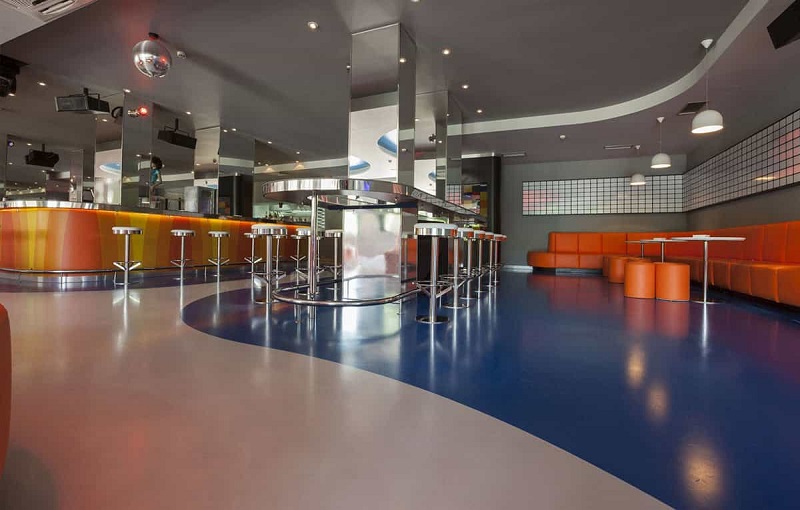Over the past few decades, epoxy coatings have become extremely prevalent in a wide range of applications, including residential, industrial, commercial, marine, transportation, institutional and others. Epoxy paints have a myriad of characteristics. Epoxy comes with different curing agents, each of which reacts with epoxy resins differently and form a network that creates a full-fledged coating with the help of epoxy resin. Selecting one epoxy type over the others would definitely need the help of a professional, and this is where epoxy floor coating suppliers can prove to be of great help. Depending upon your applications and uses, these suppliers can suggest you the right epoxy coating type you must select for your purpose.
 |
| Epoxy Floor Coating Suppliers |
Let’s Have A Look at Different Types of Epoxies Available Out There:
#1. Polyamine: Epoxy cured with polyamine is highly effective in resisting abrasions and chemicals. It is a very hard film that is available with epoxy floor coating suppliers in a number of categories, such as cycloaliphatic amine, aliphatic amine, ketamine, phenylamine, and aromatic amine. Different categories of amines offer different chemical resistant properties to the coatings. Epoxy coatings cured with polyamines have improved resistance power against corrosion caused due to microbial growth. Polyamine epoxy has a short pot life and is known to be highly resistant to heat and chemicals. It is tough and brittle and has high resistant power to abrasions.
#2. Polyamide: When you approach epoxy floor coating suppliers, they will show you epoxy coatings that are cured with polyamides too. Polyamide is a kind of reactive resin that is created after a long chain reaction of fatty acid with a multi-functional amine. These amines have high molecular distance in between them, due to which they have a very low vapor pressure. These epoxies are often mixed in primers for coating and recoating purposes. They are very flexible, and they adhere to the surfaces very well. They also have high resistance against corrosion. They are also known to be highly resistant to weather conditions, moisture, and alkali, but have a low resistance to acids and chalk. As compared to polyamine epoxies, polyamide epoxies are safer to work with.
#3. Novolac: This epoxy contains more than two groups of epoxies per molecule, due to which it proves to be a highly functional epoxy resin to suit different purposes. Basically, it is a polyoxide that is created when a phenolic novella resin reacts with epichlorohydrin. After curing, it receives a high cross-link density due to its high functionality and resistance power. Your epoxy floor coating suppliers will recommend this epoxy coating to you if you are going to install it in a place that requires high chemical, solvent and temperature resistance power. This type of coating finds extreme usage in applications like automotive primers, tank linings, coils, appliances, pipe coatings, maintenance coatings, marine coatings, etc. They often need heat to cure completely, but some of them can also be formulated for curing at room temperatures.
#4. Phenolic: This is a kind of epoxy coating that is cured with heat using phenolic resin. It is often formulated to be coated on cans and drums that need high chemical resistance power. It provides a high protection level against corrosion, due to which epoxy floor coating suppliers recommend it for a wide variety of applications like immersion services for salts, solvents, and acids. It is often used in places with low pH levels and high-temperature conditions. It has high resistance power against chemicals like phenol, hydrochloric acid, carbon tetrachloride, anhydrous chlorobenzene, etc.
So, epoxy floor coating suppliers will show you epoxies made with different curing agents, which you can choose as per your particular purpose and usage conditions.
